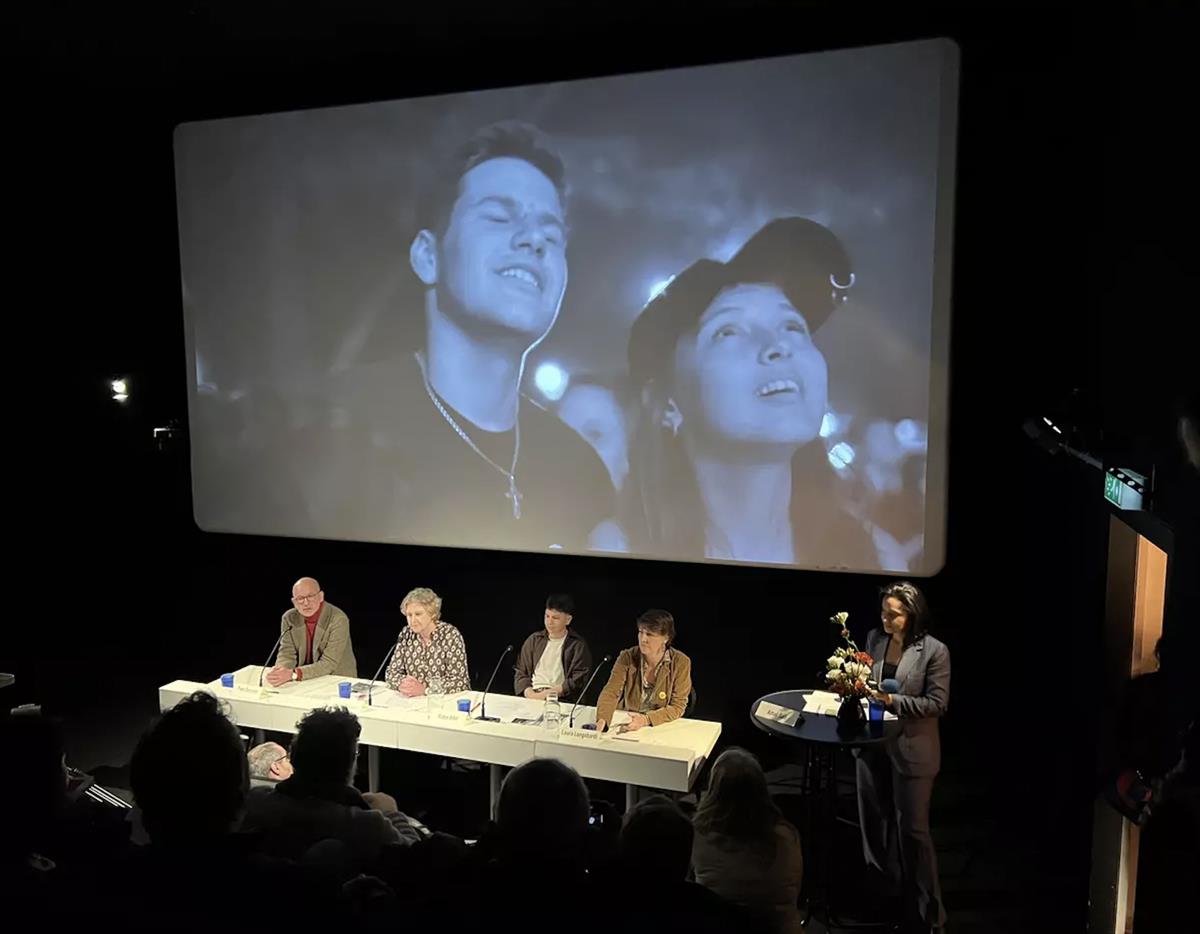
Stories of migration, conflict and climate change will dominate the programme at Geneva’s International Film Festival and Forum on Human Rights (FIFDH) next month.
The 21st edition of the festival will spotlight the stories of international filmmakers and activists spanning themes of displacement, the environment and conflict, from the plight of women in Afghanistan and Iran to the fight for climate justice around the world.
Debates and roundtables during the nine-day event, which will be held in parallel to the main session of the UN Human Rights Council, will also address pressing rights issues such as femicide and violence against women, the impact of emerging technologies on privacy and the harmful consequences of colonisation.
“In this edition of the festival, we would like to question the notion of human rights in the current context: the climate emergency, the migratory crises – with the literal and figurative walls being built in Europe and elsewhere – as well as the wars and conflicts in the world,” said FIFDH programme director Irène Challand, who was appointed to the position in 2022, in a statement.
Leading artists and activists from around the world are also expected to take part in the festival. They include Canadian-Somali activist and Right Livelihood award laureate Ilwad Elman, Kurdish singer and activist Mutlu Kaya and Indian ecofeminist Vandana Shiva.
A total of 36 films will be screened during the festival. Many tell stories from the heart of some of the world’s most volatile areas, from the tale of the journalists at Afghan newspaper Etilaat Roz who covered the Taliban takeover in Kabul in 2021, to a ground-breaking documentary about the Caesar Report, which uncovered the crimes against humanity perpetrated by the Bashar Al-Assad regime in Syria.
Work by filmmakers from countries including Ukraine, Palestine and the Democratic Republic of Congo explore themes such as exile, identity and oppression, while a programme of over 40 debates and events will grapple with the most pressing political, ethical and social issues of our times.
A number of films recount personal stories, such as Aurora’s Sunrise, directed by Armenian filmmaker Inna Sahakyan, which tells the tale of a survivor of the Armenian genocide. Motherland, meanwhile, depicts the culture of violence in Belarus from the perspective of soldiers, bereaved mothers and activists.
A variety of fictional films will also be shown such as Le Barrage, by Lebanese artist and director Ali Cherri, which depicts the political and social situation in Sudan under the dictatorship of Omar al-Bashir, and La hija de todas las rabias (Daughter of Rage) by Laura Baumeister, which explores the exploitation of children in Nicaragua.
The environment is also a major theme at the festival. The documentary Duty of Care: The Climate Trials tells the story of the lawyer Roger Cox, who successfully sued Shell and the Dutch state for environmental abuse and neglect, while Holding Up The Sky depicts the Yanomami people’s fight to protect their land in the Amazon.
Several films will be premiered globally at the event, including director Anne Poiret’s documentary about the revelations uncovered by journalists in 2021 regarding the illegal use of the spyware programme Pegasus by 65 states to monitor thousands of human rights defenders, journalists and political activists.
The 2023 edition of FIFDH coincides with the 75th anniversary of the Universal Declaration of Human Rights, which “encourages us to consider these rights at the crossroads of their continuity, breakdowns and developments”, said Challand, who will be leading the festival as programme director for the first time this year.
She said the anniversary prompted the festival to address wide-ranging themes such as “humiliation as a tool of oppression, the extension of universal rights to the world of living beings or the ethical pitfalls of the digital age”.
For the first time, FIFDH will screen films aimed specifically at children to help them discover and explore themes that can be hard to address, such as child labour and displacement.
The festival will also run impact days from 13 to 14 March that aim to bring together filmmakers with activists, NGOs, philanthropists and media to maximise the outreach of their films and stories. Three of the documentaries are then included in the festival programme.
Many of the past films that have been selected during the impact days have later been taken up by UN agencies or gone on to win major awards. The documentary Shadow Game, which highlights the plight of young unaccompanied asylum seekers in Europe and was presented at the FIFDH in 2021, was later used by the UN, while Softie, based on the life of Kenyan political activist and photojournalist Boniface Mwangi and his family, won the special jury prize at the Sundance Film Festival in 2020.
The full programme of the film festival can be found on FIFDH’s website.
SOURCE: GENEVA SOLUTIONS